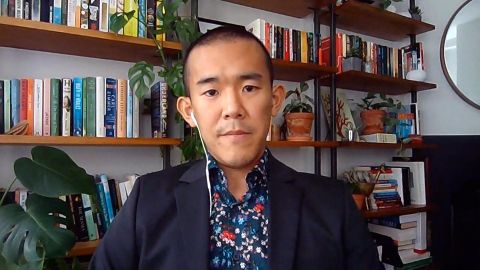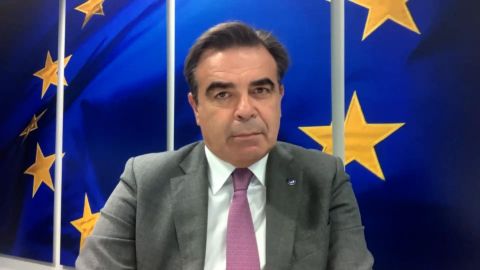Read Transcript EXPAND
MARGARITIS SCHINAS, VICE PRESIDENT, EUROPEAN COMMISSION: Yes, now, let me first tell you that these are not reports. These are facts. I was myself in the Lithuania-Belarusian border at the beginning of September, and I saw it with my own eyes. This is a systematic instrumentalization, weaponization of human suffering by someone who brings people in the E.U. border, and, with the help of police and special forces, actually pushes them into the European Union. European Union will not tolerate the use of people as tools for political purposes. Yesterday, we suspended the visa facility for Belarusian officials. And we are now working very closely with our member states to make sure that these tactics cannot prosper. No one can intimidate the European Union.
BIANNA GOLODRYGA: Well, the Lithuanian foreign minister calls this hybrid warfare and something that we have seen in the past from Belarus’ benefactor, Vladimir Putin, as well. But this just goes back to the question of deterrence. And revoking visas may not deter him. You see him unfazed in this interview with Matthew Chance. There were sanctions that were imposed following the hijacking of that Ryanair flight back in May, and yet he continues to act so aggressively and egregiously. What more can be done? I know Belarusian — and I’m sure you’re aware Belarusian activists say that more does need to be done, and perhaps he shouldn’t be recognized at all.
SCHINAS: First of all, I think it is now — by now clear that the sanctions against the Belarusian regime remain intact. We are reinforcing this with visa measures we announced yesterday. And we are stepping up pressure at the U.N. and with our allies to make sure that the situation is addressed effectively. Parallel to that, we’re helping our front-line member states, namely, Lithuania, that has suffered the biggest part of the pressure, with 35-6 million euros of support, with more than 200 E.U. border guards that are in place with help from our other member states. And we are dispatching also teams in Poland to make sure that they can get European support. We are obliged by this extraordinary situation to activate all resources at our disposal to help our member states with — who are suffering under these acts.
About This Episode EXPAND
The European Commission’s Vice-President discusses the migrant crisis. The Atlantic’s Ed Yong explains how we can prepare for the next pandemic. “Sex Education” creator Laurie Nunn discusses the show’s third season.
LEARN MORE



